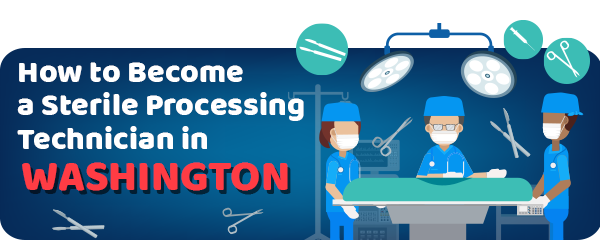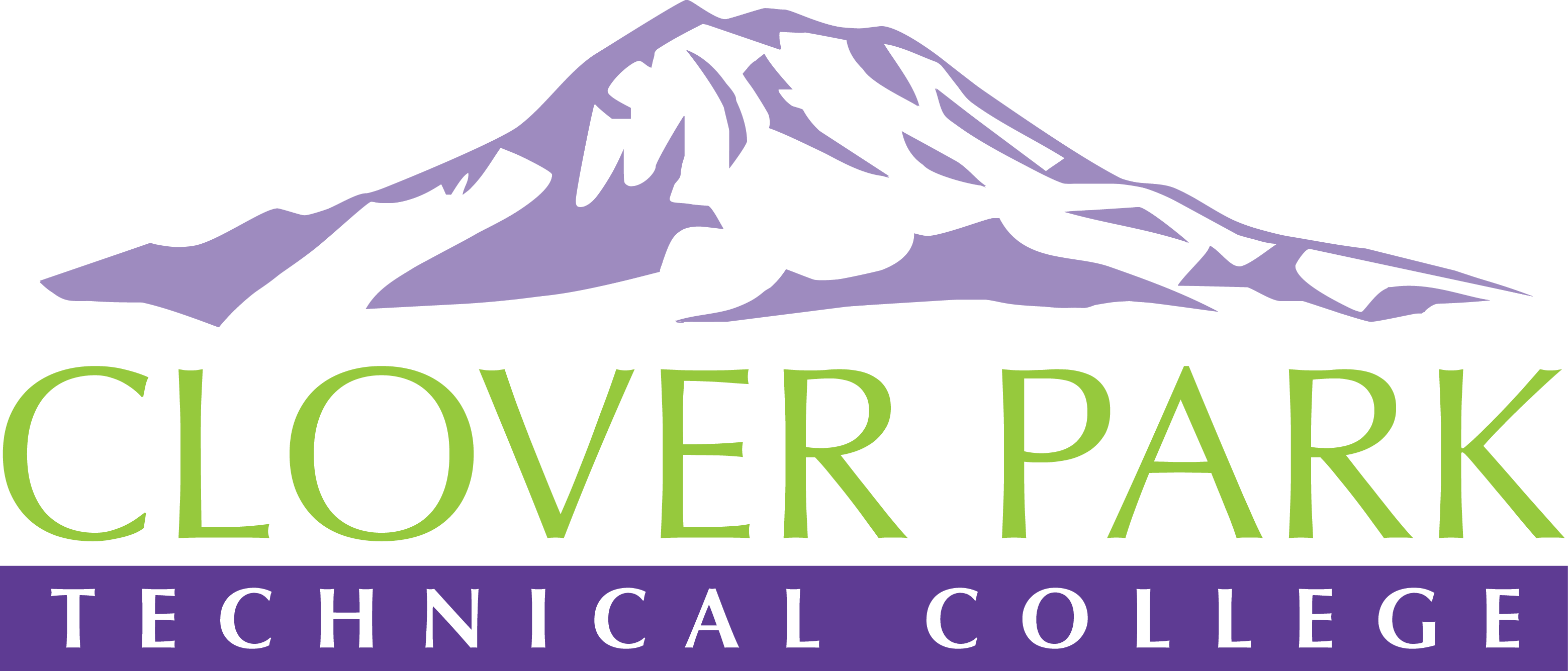
The healthcare industry in Washington offers a rewarding and fulfilling work environment for professionals seeking stable job opportunities.
Among the various career paths available, becoming a sterile processing technician is an excellent option to consider.
If you are interested in pursuing a career as a sterile processing technician in Washington, it is important to familiarize yourself with the requirements of the role.
While a license is not mandatory to secure your first job in most states, including Washington, obtaining certification is highly recommended.
Article Table of Contents
Sterile Processing Technician Job Duties and Skills in Washington
Many medical facilities in the state prefer to hire certified sterile processing technicians with relevant experience, as it demonstrates their competence and knowledge in the field.
As a sterile processing technician, you will be responsible for a range of daily duties, like:
- Performing inventory checks
- Managing and keeping track of the spread of illness and infection
- Cleaning, sterilizing, packaging, and storing medical tools
- Maintaining and fixing medical equipment
Additionally, following established protocols and adhering to specific methods for effective disinfection and sterilization of medical tools and equipment are crucial aspects of the role.
To excel in this career, it is beneficial to develop additional skills beyond the core responsibilities.
This includes having:
- Good organizational skills
- An ability to find and solve common problems related to the job
- Knowledge of the medical terminology
- A good understanding of aseptic techniques
The specific tasks and required skills may vary depending on the employer and healthcare facility.
Becoming a Sterile Processing Technician in Washington
Now, let’s explore the steps to becoming a certified sterile processing technician in Washington.
One of the most straightforward paths is to successfully complete the three-hour national certification exam.
Several organizations offer certification exams in Washington, such as the Healthcare Sterile Processing Association (HSPA).
The HSPA offers multiple levels of licensing, but the entry-level certification is sufficient to start your career.
Once you have obtained the entry-level certification, you can take the Certified Registered Central Service Technician (CRCST) exam.
Another option for certification is through the Certification Board for Sterile Processing and Distribution (CBSPD).
In addition to passing the exam, CBSPD requires candidates to have a minimum of 12 months of experience in sterile processing.
Other requirements for obtaining a license include completing approximately 400 hours of lab experience, submitting a fee, holding a high school diploma or GED, passing a background check, and successfully passing drug tests.
It is important to note that your sterile processing technician certification will require annual renewal.
To further enhance your knowledge and stay updated with industry changes, consider attending extra classes and workshops.
Training Programs for Sterile Processing Technicians in Washington
Let’s learn a bit more about the schools that offer programs in this state.
Clover Park Technical College 
With campuses in Lakewood and Puyallup, the school provides a Central Service/Sterile Processing program that equips students with the knowledge to join the ranks of healthcare professionals.
This program covers essential topics and practical training, ensuring graduates are well-prepared for their future roles.
Yakima Valley College 
This is yet another institution that offers a sterile processing technician program designed to be completed in just two quarters.
This accelerated program allows students to gain the necessary knowledge and hands-on experience efficiently, enabling them to enter the workforce more quickly.
Renton Technical College 
This school offers a Surgical Technologist (ST) program, which is more advanced.
While this program encompasses more than just sterile processing, it provides students with a broader understanding of surgical procedures and active patient care.
Columbia Basin College in Pasco 
This college offers a Healthcare Central Service Technology program, focusing specifically on the decontamination and sterilization of surgical instruments.
Bellingham Technical College in Bellingham 
It offers an Associate of Applied Science degree in Surgery Technology.
This comprehensive program not only trains students to provide assistance in the operating room but also emphasizes the proper cleaning and sterilization of equipment.
By gaining a real understanding of surgical procedures and maintaining a sterile environment, graduates are well-prepared for a successful career as surgical technologists.
| School Name | Address |
|---|---|
| Bellingham Technical College in Bellingham | 3028 Lindbergh Ave, Bellingham, WA 98225 |
| Clover Park Technical College | 4500 Steilacoom Blvd SW, Lakewood, WA 98499 |
| Columbia Basin College in Pasco | 2600 N 20th Ave, Pasco, WA 99301 |
| Renton Technical College | 3000 NE 4th St, Renton, WA 98056 |
| Yakima Valley College | W Nob Hill Blvd &, S 16th Ave, Yakima, WA 98902 |
Sterile Processing Technician Salaries in Washington
Once you obtain your license as a sterile processing technician in Washington, you’ll discover a wealth of employment opportunities awaiting you.
The healthcare industry in Washington is thriving, offering a diverse range of settings where you can apply your skills and expertise.
Now, let’s explore the topic of salaries for sterile processing technicians in Washington.
The average annual salary for professionals in this field in the state of Washington is approximately $49,000.
Some facilities may offer higher salaries or additional benefits to attract and retain qualified technicians.
The state’s robust healthcare industry ensures a promising job market and ample opportunities for career growth and advancement.
By obtaining the certification and staying up-to-date with industry advancements, you can embark on a journey in the field of sterile processing in the vibrant state of Washington.
Annual Salary Range:| Location | Avg. Annual Salary |
|---|---|
| Seattle | $50,637 |
| Bellevue | $50,637 |
| Renton | $50,538 |
| Everett | $49,728 |
| Marysville | $49,728 |
| Bremerton | $49,563 |
| Tacoma | $49,353 |
| Federal Way | $49,353 |
| Lakewood | $49,353 |
| Kent | $49,279 |
Regional Salary in Washington
| Region | Employed | Avg. Annual Salary | Avg. Hourly Pay | Top 10% Annual Salary | Bottom 10% Annual Salary |
|---|---|---|---|---|---|
| Kennewick-Richland, WA | 110 | $37,800 | $18.17 | $49,360 | $30,140 |
| Olympia-Tumwater, WA | 100 | - NA - | - NA - | - NA - | - NA - |
| Seattle-Tacoma-Bellevue, WA | 1,140 | $49,530 | $23.81 | $63,270 | $33,870 |
| Spokane-Spokane Valley, WA | 270 | $44,630 | $21.46 | $51,910 | $35,980 |
| Wenatchee, WA | 30 | $45,520 | $21.89 | $63,080 | $33,990 |
| Yakima, WA | 50 | $39,860 | $19.17 | $50,080 | $32,570 |
* Employment conditions in your area may vary.
Frequently Asked Questions
Which facilities from Washington hire sterile processing technicians?
Hospitals, laboratories, doctor’s offices, clinics, and dental practices all depend on skilled sterile processing technicians to ensure the efficient sterilization and maintenance of medical instruments.
How is the income for sterile processing techs in Washington compared to the salary at the national level?
The salaries for sterile processing technicians in Washington don’t align with the national average.
In this state, the salaries are higher than the national average.
Do I need to know CPR before becoming a sterile processing technician in Washington?
While the job description indicates that direct contact with patients may not be a requirement, it is important to note that as a sterile processing technician, you will be working in a medical facility.
In such environments, it is typically expected that all personnel possess knowledge of CPR and/or other life-saving techniques.
This ensures that everyone is prepared to respond to emergency situations and contributes to the overall safety and well-being of patients and staff.
Read the full guide: How to Become a Sterile Processing Technician